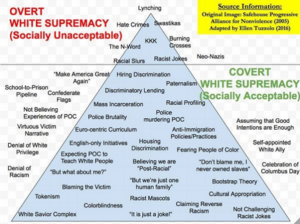
This post was written by Jane Tanner, Grants Manager at Paul Hamlyn Foundation. This blog is cross-posted from Alliance Magazine’s ‘Uprooting racism in grantmaking’ blog series (the original can be found here).
Finally I had a space where I wasn’t required to explain the impact of working in the established colonial constructs of grantmaking.
I had a visceral response as we worked through the various exercises with facilitators Esua Goldsmith and Pontso Mafethe in the cohort for people raced as Black in the series of anti-racism sessions led by Healing Solidarity, supported by the Ariadne Network – European Funders for Social Change and Human Rights last year.
There was an immediate stripping away of that load of always being ready to code switch, or performing different linguistic or social cues to navigate white dominant culture. I realised just how much energy is expended in me having to do that. The invisible tasks which are necessary to do your job in an institutional or professional settings, of course we all must do to some extent. Some of us, however, must do this much, much more than others.
It was simultaneously calming and energising to be in a space with others who identify as Black, having authentic conversations about tackling social injustice and all of us equally committed to our respective work in the global sphere. I could see the relief in others’ faces as well, and a willingness to share thoughts and observations free of that burden, amidst our already heavy workloads and compounded emotional exhaustion due to the latest manifestations of anti-Blackness in 2020. It made me painfully aware of how much I carry this tension in my body, how it literally affects how I sit and stand.

Image courtesy of the Paul Hamlyn Foundation
This Pyramid of White Supremacy shared during the session was a helpful reminder as to why I continue to feel drained by this, even within my relatively sheltered life. It was also a reminder of why so many of my well-meaning colleagues and contemporaries continue to struggle to accept their own responsibility in dismantling white supremacy.
Consider this. If we accept each of these examples of racism as the blocks to this pyramid, we can remove the lower ones and the whole structure collapses!
Sadly, I remain deeply cynical that unless people fully embrace and address their personal behaviours as described in the blocks above, there will be no change – regardless of intention. With it comes a level of honesty about how these behaviors maintain people’s comfort and privilege.
The sessions reminded me that power is never given. It is taken. It therefore throws into question my own efforts to encourage, lead and support others to do better, which can be excruciatingly frustrating and debilitating. At the same time, this signals a real crunch point. As Black people, we have an opportunity to be less apologetic, more courageous, and more focused about acting on that power.
Ultimately, the sessions reminded me that more is possible when we can discuss concepts of power and our common ground, beyond the confines of professionalism and while connecting on issues of race on a much more personal level.
Jane Tanner is a grants manager at the Paul Hamlyn Foundation.
Continue reading this series about key learnings from conversations among People of Colour and among white people.

